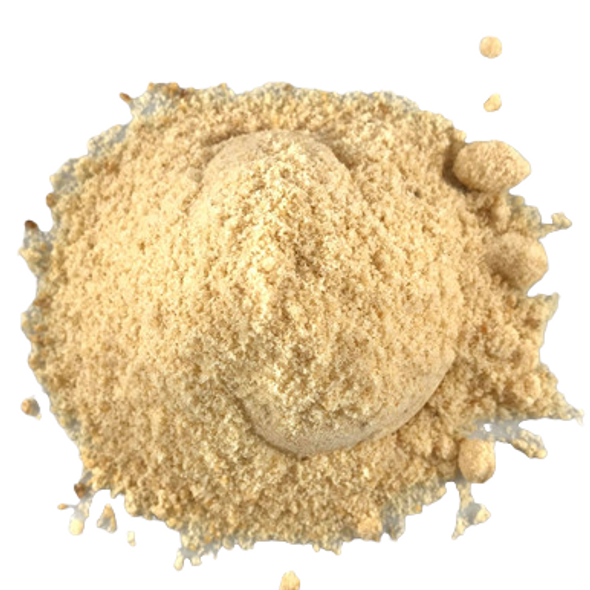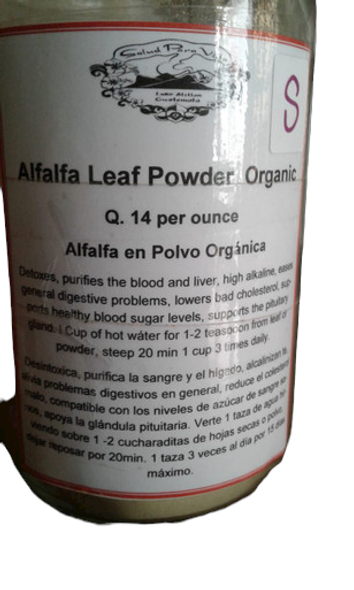Price Per Ounce / Precio Cada Onza
Beetroot Powder, Organic - Polvo de Remolacha, Organica
- SKU:
- SPV-0232
Description
Beets have existed for thousands of years, but the beet root we know today was only hybridized about 300 years ago. Beta vulgaris is typically enjoyed as a vegetable for its earthy, yet sweet taste, and nutritious value. Our organic non-GMO beet root powder can be added to culinary dishes or blended into smoothies, juices, and herbal formulas.
In ancient times, beets had elongated roots like carrots and the globular red beet we now eat was only hybridized about 300 years ago. Beets have the highest sugar content of all the vegetables and are becoming popularly used as a sweetening substitute. Beet juice and beet powder are used to flavor carrot, celery, and other vegetable juices, and also to color a variety of foods.
Beets, or at least the leaves of the beet, have been used since before recorded history. Charred beet roots were found among Neolithic remains at an excavation site in the Netherlands. The Sea beet, the ancestor of the modern cultivated beet, was probably domesticated somewhere along the Mediterranean. Both the roots and leaves have been used since the time of the Romans. In the Talmud, the rabbis recommended "eating beet root, drinking mead, and bathing in the Euphrates" as part of a prescription for a long and healthy life. During the middle ages, Platina in his De Honesta (1460) noted that beet root was good for bad breath, especially "garlic breath".
Although the leaves were consumed for many centuries, the root itself was not widely consumed until French chefs recognized its culinary potential in the early 19th century.
Precautions
No known precautions. We recommend that you consult with a qualified healthcare practitioner before using herbal products, particularly if you are pregnant, nursing, or on any medications.
This information has not been evaluated by the Food and Drug Administration. This product is not intended to diagnose, treat, cure, or prevent any disease. For educational purposes only.
___________________________________________________________________________________________________________________________________________________________________________________________________________________________________________________________________________________________________
Las remolachas han existido durante miles de años, pero la raíz de remolacha que conocemos hoy en día sólo se hibridó hace unos 300 años. La Beta vulgaris se disfruta típicamente como un vegetal por su sabor terroso, pero dulce, y su valor nutritivo. Nuestro polvo de raíz de remolacha orgánica no modificada genéticamente puede añadirse a los platos culinarios o mezclarse en batidos, zumos y fórmulas de hierbas.
En la antigüedad, la remolacha tenía raíces alargadas como las zanahorias y la remolacha roja globular que ahora comemos se hibridó sólo hace unos 300 años. La remolacha tiene el mayor contenido de azúcar de todas las verduras y se está utilizando popularmente como sustituto de la dulzura. El jugo de la remolacha y el polvo de remolacha se usan para dar sabor a la zanahoria, al apio y a otros jugos de verduras, y también para dar color a una variedad de alimentos.
La remolacha, o por lo menos las hojas de la remolacha, se han utilizado desde antes de la historia registrada. Se encontraron raíces de remolacha carbonizadas entre los restos del Neolítico en una excavación en los Países Bajos. La remolacha de mar, el antepasado de la remolacha cultivada moderna, probablemente fue domesticada en algún lugar del Mediterráneo. Tanto las raíces como las hojas se han utilizado desde la época de los romanos. En el Talmud, los rabinos recomendaban "comer raíz de remolacha, beber aguamiel y bañarse en el Éufrates" como parte de una receta para una vida larga y saludable. Durante la Edad Media, Platina en su De Honesta (1460) observó que la raíz de remolacha era buena para el mal aliento, especialmente el "aliento a ajo".
Aunque las hojas se consumieron durante muchos siglos, la raíz en sí no se consumió ampliamente hasta que los chefs franceses reconocieron su potencial culinario a principios del siglo XIX.
Precauciones
No se conocen las precauciones. Recomendamos que consulte a un profesional sanitario cualificado antes de utilizar productos herbales, especialmente si está embarazada, amamantando o tomando algún medicamento.
Esta información no ha sido evaluada por la Administración de Alimentos y Medicamentos. Este producto no pretende diagnosticar, tratar, curar o prevenir ninguna enfermedad. Sólo tiene fines educativos.



